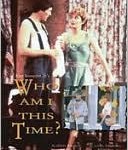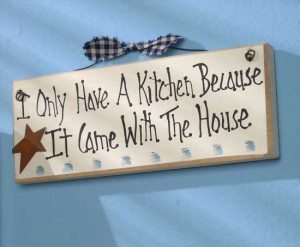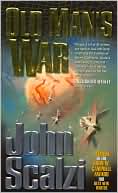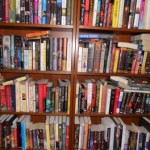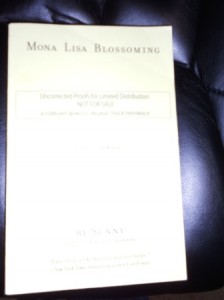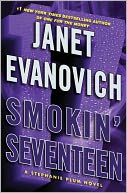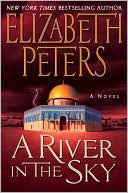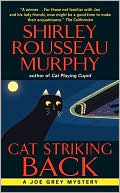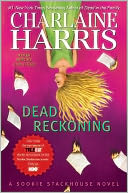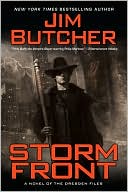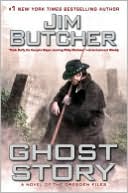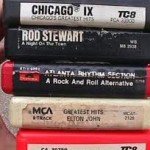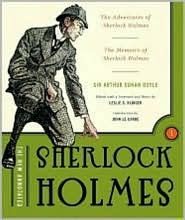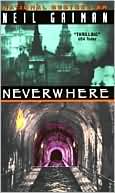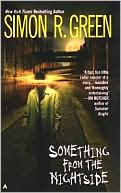There’s been a lot of talk recently about just how hard it is for ebook sellers to duplicate the experience of book recommendations that independent bookshops and libraries provide. Earlier this week, I experienced again for myself just how powerful a personal recommendation can be.
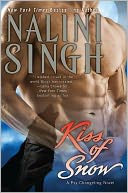 The latest entry in Nalini Singh’s Psy-Changeling series was released on May 31. Kiss of Snow was her first hardcover release after 9 paperbacks. I pre-ordered the book from B&N, and, joy of joys, it automatically downloaded to my iPad a little after midnight on 5/31. There’s convenience for you! But I first started reading the series after the third book because a friend recommended it to me. She knew I read paranormal romance, and was pretty sure I would like the series. So, even though I had looked at the first book, Slave to Sensation, in the bookstore more than once, based on her personal recommendation I bought the book. And my friend was absolutely correct. I did love the book, and every single one since including the latest, which I devoured in between unpacking boxes earlier this week.
The latest entry in Nalini Singh’s Psy-Changeling series was released on May 31. Kiss of Snow was her first hardcover release after 9 paperbacks. I pre-ordered the book from B&N, and, joy of joys, it automatically downloaded to my iPad a little after midnight on 5/31. There’s convenience for you! But I first started reading the series after the third book because a friend recommended it to me. She knew I read paranormal romance, and was pretty sure I would like the series. So, even though I had looked at the first book, Slave to Sensation, in the bookstore more than once, based on her personal recommendation I bought the book. And my friend was absolutely correct. I did love the book, and every single one since including the latest, which I devoured in between unpacking boxes earlier this week.
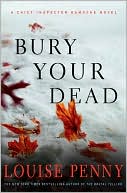 I am a subscriber to the Yahoo Group “Letters of Mary”, which is a list devoted to the works that Laurie R. King has written about Mary Russell and her husband Sherlock Holmes. The first book in the series is The Beekeeper’s Apprentice. (If this sounds interesting, read this post for more details about the series) Among the discussion in the Group, one of the more prolific authors uses a quote from Louise Penny’s Inspector Gamache as her sig, “He…told him the four sentences that lead to wisdom. *I’m sorry. I was wrong. I need help. I don’t know.* He’d never forgotten them and when he took over as Chief Inspector, Gamache passed them on to each and every one of his agents. Some took them to heart, some forgot them immediately. That was their choice.” The quote is from the latest book in the series, Bury Your Dead, which recently won the Agatha Award for Best Novel of 2010. But at the time I kept seeing the quote, the book hadn’t won the award yet, it just caught my interest. Even though I had never met the person who used it as her sig, I respected her work in the group enough to take it as a recommendation of the series of books. The series, starting with Still Life, is really, really good. It is one of those mysteries where you start to wonder about the body count in the small town, but the character of Chief Inspector Gamache is definitely worth getting to know. I’m just sorry I have to wait until the end of August for A Trick of the Light, which is the next and seventh book in the series.
I am a subscriber to the Yahoo Group “Letters of Mary”, which is a list devoted to the works that Laurie R. King has written about Mary Russell and her husband Sherlock Holmes. The first book in the series is The Beekeeper’s Apprentice. (If this sounds interesting, read this post for more details about the series) Among the discussion in the Group, one of the more prolific authors uses a quote from Louise Penny’s Inspector Gamache as her sig, “He…told him the four sentences that lead to wisdom. *I’m sorry. I was wrong. I need help. I don’t know.* He’d never forgotten them and when he took over as Chief Inspector, Gamache passed them on to each and every one of his agents. Some took them to heart, some forgot them immediately. That was their choice.” The quote is from the latest book in the series, Bury Your Dead, which recently won the Agatha Award for Best Novel of 2010. But at the time I kept seeing the quote, the book hadn’t won the award yet, it just caught my interest. Even though I had never met the person who used it as her sig, I respected her work in the group enough to take it as a recommendation of the series of books. The series, starting with Still Life, is really, really good. It is one of those mysteries where you start to wonder about the body count in the small town, but the character of Chief Inspector Gamache is definitely worth getting to know. I’m just sorry I have to wait until the end of August for A Trick of the Light, which is the next and seventh book in the series.
 L.E. Modesitt’s Imager is a book that I practically shoved at people. A lot of fantasy series are coming-of-age stories. In this particular case, although the hero does come into his power, it is specifically not a coming-of-age story–the protagonist is already an adult, although just barely. It was one of the things about the book I liked quite a bit. So, I recommended it, over and over. A friend in the next office at my LPOW read fantasy, I knew he liked Ray Feist’s Magician series, so I convinced him to read this. We ended up practically fighting over the library’s copies of books 2 and 3 of the series, Imager’s Challenge and Imager’s Portfolio, and had endless conversations about how we thought the story ought to go. He also started reading the rest of Modesitt’s books (there are LOTS) which I haven’t gotten around to yet. I will definitely read Scholar, the next Imager book, in November.
L.E. Modesitt’s Imager is a book that I practically shoved at people. A lot of fantasy series are coming-of-age stories. In this particular case, although the hero does come into his power, it is specifically not a coming-of-age story–the protagonist is already an adult, although just barely. It was one of the things about the book I liked quite a bit. So, I recommended it, over and over. A friend in the next office at my LPOW read fantasy, I knew he liked Ray Feist’s Magician series, so I convinced him to read this. We ended up practically fighting over the library’s copies of books 2 and 3 of the series, Imager’s Challenge and Imager’s Portfolio, and had endless conversations about how we thought the story ought to go. He also started reading the rest of Modesitt’s books (there are LOTS) which I haven’t gotten around to yet. I will definitely read Scholar, the next Imager book, in November.
My point is that a significant number of book purchases came from three recommendations. My friend told me to read one Nalini Singh book. I ended up buying 10 so far since the series is still ongoing. One person on the “Letters of Mary” group effectively recommends the Louise Penny books in her sig file, and because of that, Galen and I have both read all 6 books in the series so far, and have continued to recommend them to others. I read Imager, recommended it to at least two other people, and I know one has read all of the Imager series, and the other has started reading all of Modesitt’s work, which consists of 56 books and rising according to Wikipedia.
Book recommending is a virtuous circle, the trick is in figuring out how to start it.


